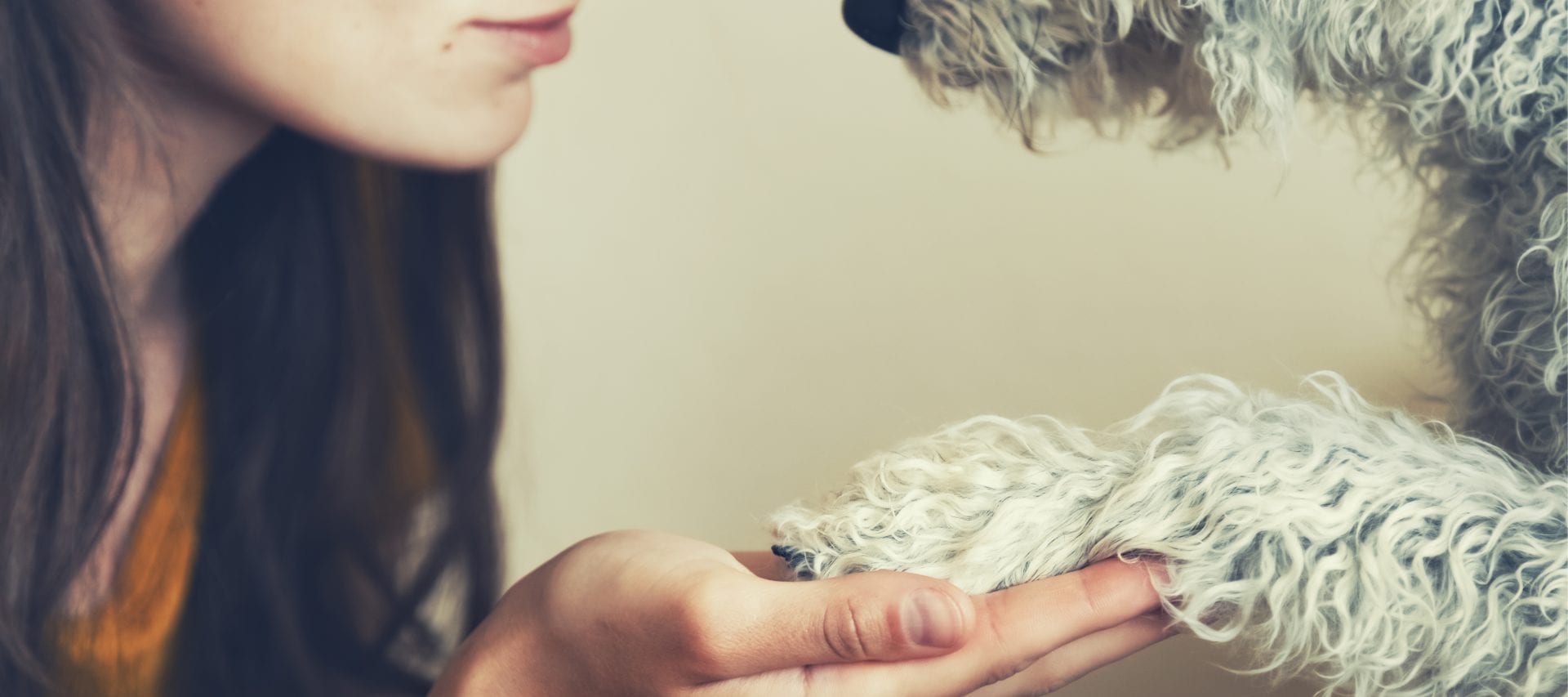During the coronavirus pandemic many young people with eating disorders have found themselves struggling with a lack of routine and living with uncertainty, and similarly to other young people, experiencing a range of difficult thoughts and emotions. Whilst we are in a period of unpredictability and unable to make specific and concrete plans, it is important to consider the impact this may have on young people who rely on these plans to manage their daily lives.
Therapy dog Milo spends his days working with lots of young people suffering from a variety of eating disorders and we have incorporated some of his daily interactions as something young people could both do themselves, or with their family/support bubble.
Managing mealtimes:
– Milo often supports young people to manage their daily meals and snacks and will be a source of companionship and comfort. Mealtimes can be challenging for those with Eating Disorders and during the pandemic there has at times been shortages of certain brands of foods which can be a cause of distress. Sitting down and writing a variety of options for mealtimes that feel manageable, can be a less anxiety provoking way of coping with this uncertainty and help to avoid any extra distress caused by last minute changes.
Setting small achievable goals:
– Often young people with Eating Disorders rely on having a sense of control. Due to the many changes we are facing during the pandemic, life can at times feel overwhelming. Milo (Assisted by his therapist Katy) often set small achievable goals with young people such as going on a daily walk, writing a page in a diary, spending 10 minutes engaging in a self-care activity, and talking to a friend or family member on the phone. One of Milo’s jobs is to join a daily walk and for some young people with Eating Disorders, this has been their one consistent achievable goal.
Setting up a support system:
– When Milo spends time with the young people he works with, he helps by being a friendly companion – someone who listens and who is non-judgemental and calm. Throughout the pandemic, many families have found themselves in heightened stress often leading to a potential crisis. It is important to have a support system and crisis plan set up, but especially so for young people suffering with Eating Disorders. Due to the nature of this illness, it can be difficult for those suffering to reach out for support when needed. By Milo being a consistent calm and listening dog, he has enabled some of the young people to communicate their anxieties and identify the difficulties they need support with.
Self-compassion:
– Being self-compassionate is sometimes challenging for young people with Eating Disorders and can often lead to being negatively self-critical. Milo is incredibly good at being non-judgemental and this is something that is very important for those supporting young people to be mindful of. When considering ways to be more self-compassionate, it is helpful to explore the phrases we say to ourselves and others.
Here are some key phrases that the young people working with Milo have communicated as being helpful for both themselves and others to communicate:
“It’s ok not to be ok”
“Today may have been a difficult day but tomorrow is a new start”
“Recovery takes time and the journey is up and down”
“I do not have to be at a low weight to be struggling”
“It is a strength to ask for help not a weakness”
“I may not love my body but my body loves me”
“I may have struggled today but I am not a failure”
Some of these phrases can often be difficult to say to oneself, however, with practice and over time, self-compassion can become part of a daily routine.
Author: Katy Pey

